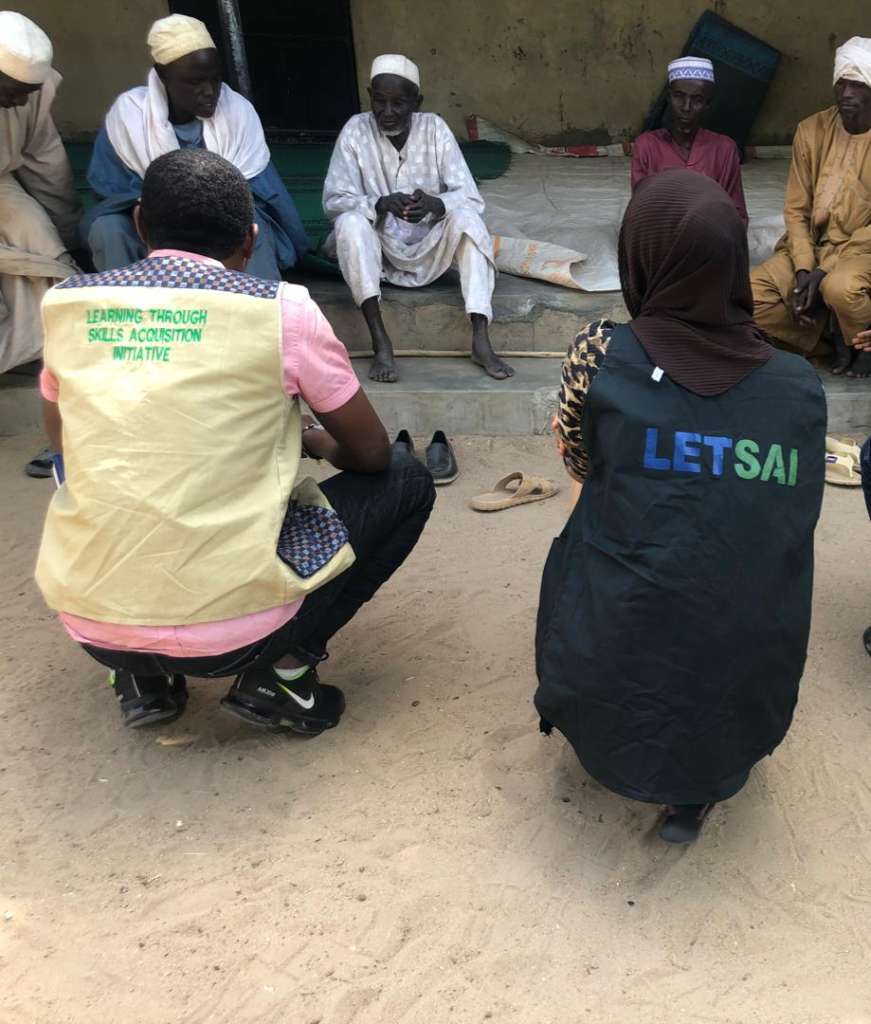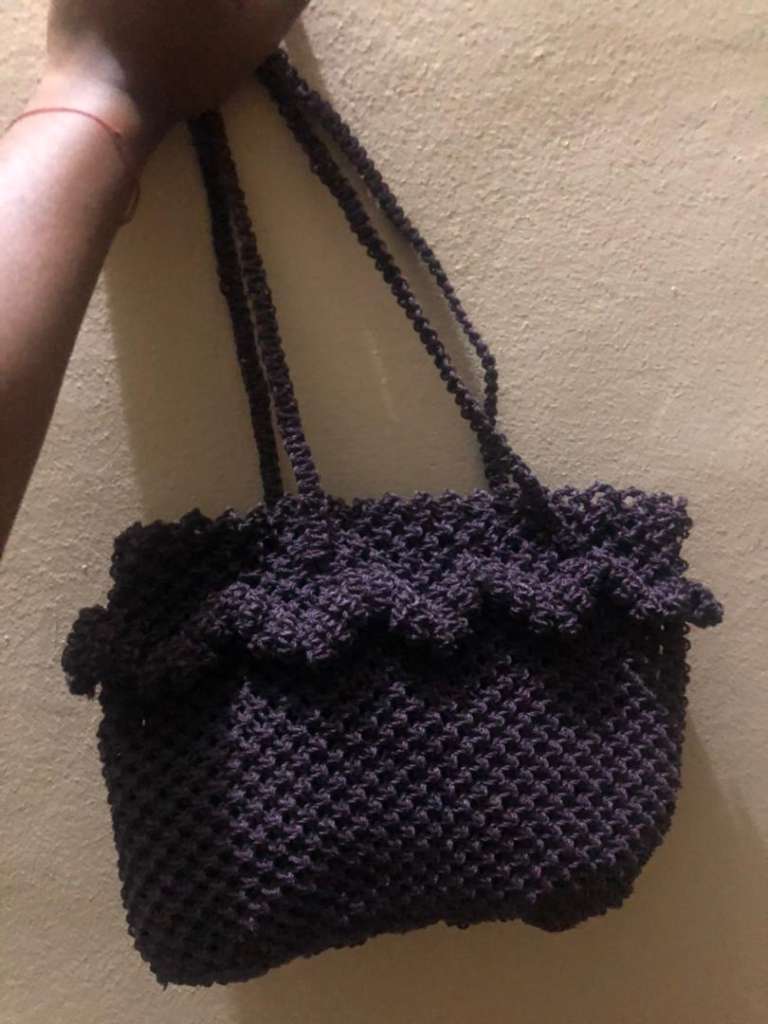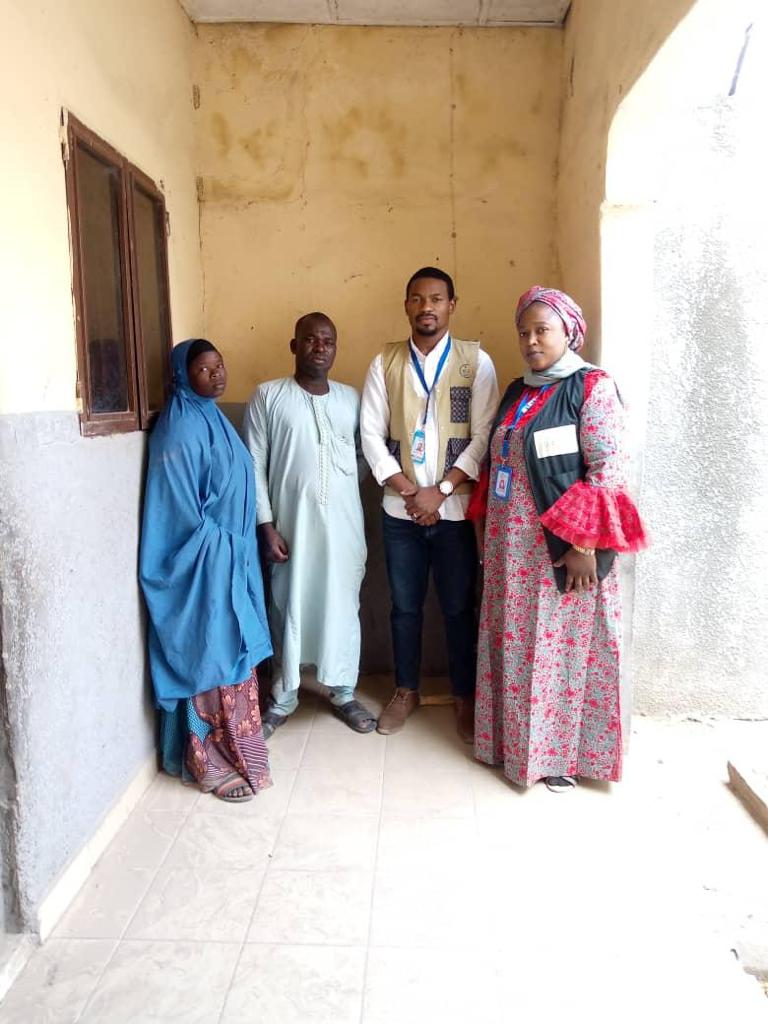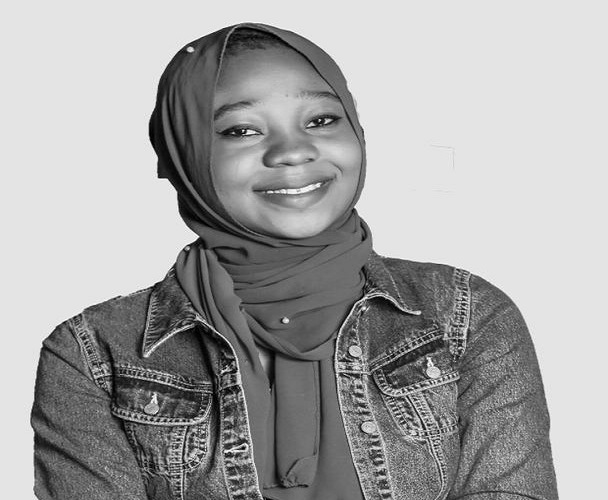“A girl I recently rescued was threatened at knife point by an old man. When it was found out that she is pregnant, everybody in the community came out to beat, insult and castigate her. She is just 12.” – Mariam Oyiza Aliyu
Bullied, emotionally and physically abused from preteen years until she left secondary school in 2011, Mariam Oyiza Aliyu has since turned her adversity into triumphs. From cruel relations to a female English teacher that verbally and physically assaulted her from junior to senior secondary school, in her home state Kogi, Oyiza endured all with a resolve that contrary to her teacher’s refrain – “you will never amount to anything”, greatness awaits her. Today, this University of Maiduguri graduate of Medical Radiography with 32 different hand skills to her credit sits as CEO of Learning through Skills Acquisition Initiative (LETSAI) a youth led, women focused non- profit organization established in June 2015. LETSAI has provided immense succour to young female victims of rape and sundry abuse in the North Eastern part of Nigeria. Indeed Oyiza Aliyu has defied all odds and she’s still soaring. She spoke with Lillian Okenwa
Raised by a single mum having lost her father at an early age, Oyiza Aliyu’s earlylife’s experiences strengthened her voice against Gender Based Violence (GBV). And when her mum who had been the rock and only support died while she was barely into her undergraduate years, Oyiza resolved to honour her memory.
“Seeing the way my mum suffered, I made a vow when she died to try as much as I can to make her proud. She had a terminal illness but hid it from us. She didn’t want me and my brother to be distressed because of her illness knowing our lives have been difficult. But just when things were about to get better for us she died.”

Always on call like a doctor either attending to some victim who had just been violated or holding strategy meetings on how best to meet the ever increasing demands of her very indigent clients, Oyiza who acquired most of her numerous hands-skills from her late mother has deployed it to the benefit of her organisation and many others. Unfortunately, her mother didn’t live long to the enjoy fruits of her labour. Oyiza and team mate on an advocacy visit in konduga local government of Borno state
“You know my mom was a multi-skilled person, Oyiza reminisced. “At a point she started doing so many things. She was making soap, making dresses and selling. She could weave the Ebira, Kogi State type of Aso Oke and she taught me how to do to do it. Also, she knows how to weave hair. That was how she was able to raise us. While she was doing all that, we were learning too. Both I and my brother, we grew up like that. We made pillow cases. I remember I could sew clothes right from when I was like 11 or 12 years. I could do so many other things like leather bags, shoe pads, shoes, macramé knitting, crocheting, both manually and with machine, and many others. I got other talents while I was in school and I added to the ones I had.
“I learnt mostly from YouTube. I was never taught by any other person, because like I told you, I am a loner, always on my own. I cannot go out or flow with people to train me due to my experience in the past. It really affected me. Even when I was in the university I was not close to any of my lecturers. I was always scared of that abuse. Abuse is something frightening. Up till now that I am an adult, I still feel the effects it had on me. I’m still not completely comfortable with hanging around people.”
On how she got trained to lead her organization, Oyiza provided some details.
I have actually volunteered to work with some local organizations rendering sundry services in Bornu State. While I was doing that, I was selling and buying. One day I met this woman talking about NGO work and how people are going there to learn skills and all that, so I told her that I also have a charity organization but that I don’t have any money to fund it. As at that time, I had this idea that I want to do something to remember my mum, so she suggested that I go and volunteer with this organization so I can gain experience and know how things are being done. The first organization I worked with was named GZI. Then the second one I volunteered with was Future Prowess, Zanna Mustapha that became a very prominent man. I volunteered to work with them for a while, and then, one day I got this call requesting for a trainer to train people on macramé bag making. I said this is good. I know how to make bags; leather bags, different kinds of bags.

I still have like four different samples of the macramé bags. I kept them as samples for other organization that might need them. So many people don’t know macramé. I was the one that introduced it to the North East. In fact, most part of Nigeria that does macramé is through me because I was the first person to do it. I did it for UNCR at that time, and UNCR kind of duplicated it. So most of those persons I trained at UNCR, UNCR used them to train other people in other locations. That was how it went round, though so many people are still not doing it. If you are lazy, you can’t do it because it takes like four days straight to finish one bag. It’s hand woven from the start to the end.
She gave some insight on challenges faced by rescued girls that were forcibly married to Boko Haram members.
These girls were previously abducted by Boko haram and married off. Now they’ve been brought back, when they go to their community, they get chastised. People chase them away. People don’t show them love. They’re told things like: “You’re the wife of the man that killed my son. You know all those kind of talk. Though they’re victims, people don’t see them as that. It gets to a point where they become kind of rebellious. That is why the relationship is difficult. Even though I have a little bit of opportunity to counsel them and work together with them, I still feel like, it’s better we keep them as confidential as possible, because they are really struggling. The community is not accepting them, that’s number one. Secondly, they have not been completely de-radicalized. So right now, they are in a different community protected by soldiers. Counsellors, psychologists, medical health people go there to work with them. Doctors work with them there. UNICEF too. But they are not allowed to leave that place or mingle with people until they are completely de-radicalized. Sometimes, they get very violent. It will take years to get them stabilized.
These are girls that were raped consistently all through captivity. They feel nobody loves or cares but if you bring them closer, it can give them some sense of trust and belonging. One of the girls, a16 year old was raped by four Boko Haram men and she kind of got attached to them. She was raped consistently for like a year. She has a child, but the child is with the Boko Haram. She doesn’t even know if the child is alive. It is not easy.
Do you see any end in sight for Boko Haram and banditry? Her response: “No, I can’t see any end.”
Oyiza’s organisation is also providing service for over 130 survivors of rape and GBV in communities in Borno state.
When we say survivors, it is mostly survivors of GBV, though it encompasses other areas but some of them have been raped, some of them have been molested. For some it’s intimate partner violence, for others it’s harassment. We have a method of identifying survivors, so when we get reports about incidents, we identify their needs.
There are different types of specialized services for different survivors. Like you know, UNICEF is providing Education. They are in different communities. You know, when there is insurgence in a particular place, there’s tendency for all these vices to skyrocket. GBV will rise. For instance in Konduga community, we have 75 survivors and in Pulka, we have 60 survivors. Pulka is not a local government. It’s just one community in Gwoza. So if you try to do case management, or where we identify survivors from the whole of that community, we might have up to 500 or even more. My organization provides economic empowerment but we bring GBV and case management into our activity. Protection of women and girls and anything that has to do with gender issues, we work on that.
We do mental health and support as well. We provide counselling for people that have been raped, that have been abused. We also train them in skills and then empower them. Sometimes link them with micro-finance banks, but most times, what I do is give them start up kits. If I have small money, I will form a Co-operative. I will open a shop for all the cooperatives, and then, I will be visiting to monitor and see how they manage it. That’s what I do. Visiting, monitoring, to see how the projects are going. Some other organizations will come in with a different approach. My own criteria for selection of beneficiaries to my projects is first of all, survivors, vulnerable women and girls.
And Oyiza agrees that rape is now an epidemic.
I think the insurgence induced this. Initially, it was not like this. It is really getting out of hand. The current cases I’m getting these days are about old men of 63/65years raping girls of 13 /14; even 11 to 12 years old girls. These are internally displaced persons living in a host community. Old men within some communities now threaten little girls. A girl I recently rescued was threatened at knife point by an old man. When it was found out that she is pregnant, everybody in the whole community was coming to beat, insult and castigate her. She is just 12.
But castigate her for what?
They were angry she didn’t talk about it and she was four months pregnant when they found out. That for her not to talk about it meant she was enjoying it. I now said, this man threatened her at knife point. If it is you, what will you do? Are you going to talk? At her age, if this happened to you, will you be able to talk? This was the argument. I talked and talked but eventually had to remove the girl from there. Right now, we’ve relocated the entire family from that place. In fact, this is the third family I am doing this for. Normally, what we do is we provide counselling, but in extreme cases like this girl’s I just had to do something. She is so small. She’s 12 and she’s 4 months pregnant.
Why relocate the entire family?

It is not possible for me to relocate only her. She’s a child. She can’t take care of herself and the funny thing is how they were staying. They were like seven or eight family members in a tiny room. They are IDPs but they were staying in a host community. The situation was really terrible. There’s another host community I know as porous as this particular one. The name of the area is Ganari. I’ve gotten cases there that it is frustrating. It is just something else. After relocating them, we were able to get them three rooms. They are the only ones staying in that house. I paid for two years for house for them. I was only able to get a job for the father, as a security man. They pay him extra money so he can get enough money to pay for the third year.
How do you coordinate rescues?
I have first respondents in all the communities. Our emergency numbers are there. When these issues happen, all they need to do is call the number. When the number is called, my first responder will pick and locate the place. After locating the place, if the case is a tough one, we can quickly send the victim to a clinic, and then we call our lawyer and police to follow up the case. While we are doing clinical management, we add case management to it.





